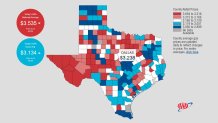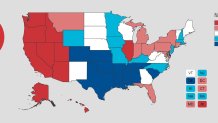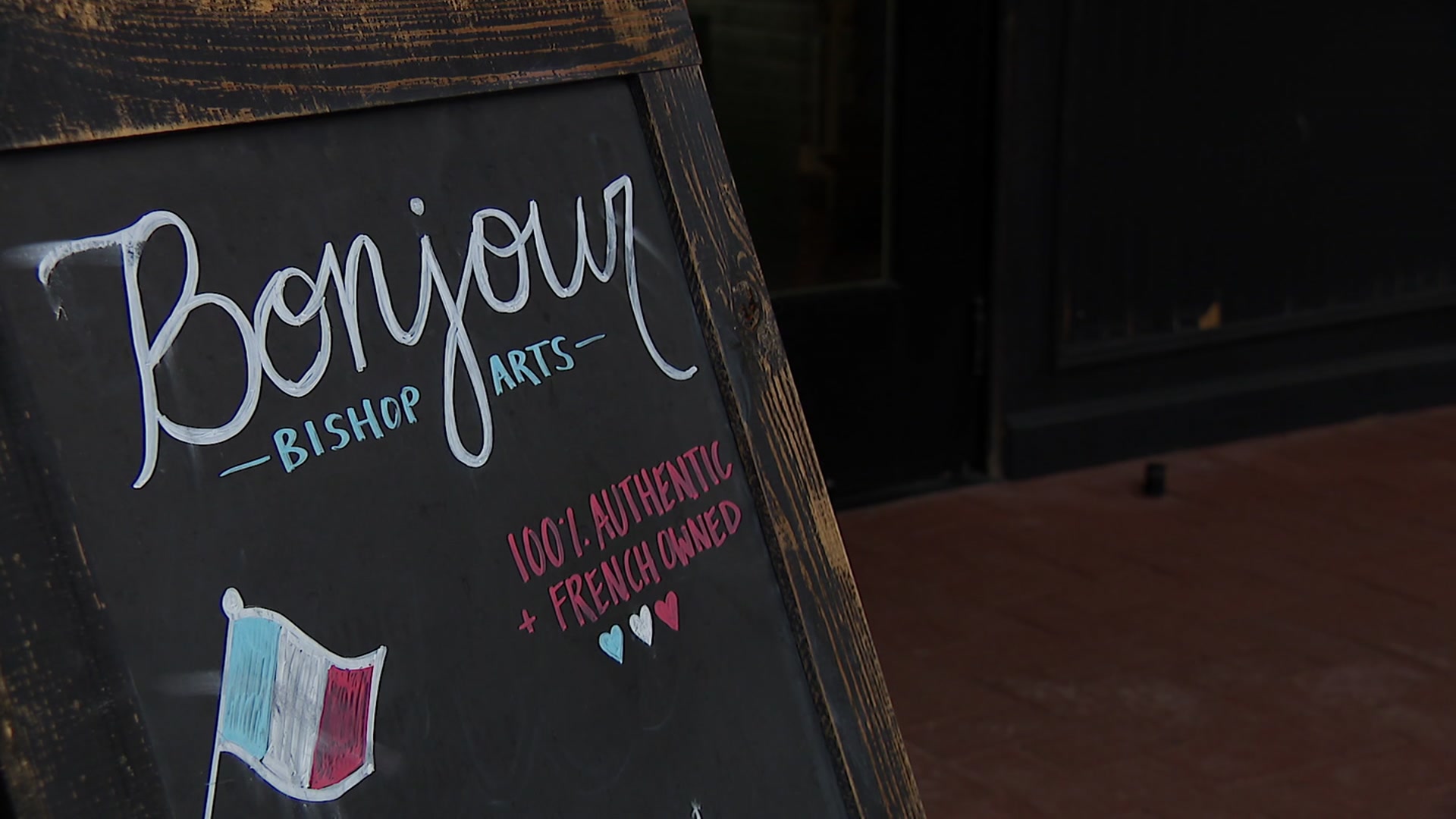Gas prices are rising in North Texas. Here is how they compare to the rest of the state.
Gas prices have spiked in the last few weeks, with no plans of coming down any time soon.
And if you're looking for gas below $3 a gallon, good luck.
Watch NBC 5 free wherever you are
The current average in Texas is $3.14 as of April 3, but many counties across the state are averaging as high as $3.50.
Currently, Dallas County is averaging $3.22/gallon and Tarrant County is averaging $3.21/gallon. Collin and Denton counties finally dropped below the $3.20 average in the last two days, now around $3.16 and $3.17 respectively.
Get top local stories in DFW delivered to you every morning with NBC DFW's News Headlines newsletter.

Looking at gas prices across the country, the national average is now $3.54, up more than 25 cents from a month ago.
Some places are even pushing $4 and $5 a gallon, so Texas remains relatively low compared to states on the West Coast and the Northeast.
"After an early spring surge, the national average for a gallon of gas spent the past week drifting up and down by a fraction of a cent before settling a penny higher at $3.53," said AAA National in a statement. "But the break may be temporary, as gas pump prices will likely resume a spring increase.

For the first time since late last year, prices at the pump are now higher on a year-over-year basis.
Local
The latest news from around North Texas.
Each spring usually leads to increased prices during transition from winter-blend to summer-blend gasoline, which is more fuel-efficient but costly to produce, leading to a 10 to 15 cents per gallon price hike.
"What leads to these price increases? Not only is the transition over to those carb-mandated blends of cleaner gasoline, but also refinery maintenance. Refineries generally carry out seasonal maintenance before the start of the summer driving season so that they can meet production and demand levels during the summer. And demand, which is starting to go up as temperatures warm back up,” said Patrick De Haan with Gas Buddy. "Generally, winter gasoline has more butane, which is cheaper, but that butane also has emissions issues in warmer weather that is swapped out for cleaner components, so generally that costs more.
Prices are also affected by increased demand due to spring break travel. Industry experts are warning people to plan ahead for summer travel as well.
Jay Young, founder and CEO of King Operating Corporation in Dallas, points to rising crude oil prices, influenced by expectations of increasing global oil demand leading to the pain being felt in the wallet.
“I just don't see it going down. So if you want to drive further this summer, be prepared to pay more. Unfortunately, be prepared to pay more,” said Young. "Make sure that it's the line item on your budget, that you look at it and you are very careful with being optimistic that it will go down. It may not go down."
Young also shared concerns about demand increasing in the future as geopolitical tensions, supply disruptions, or spikes in demand could lead to further price increases.
"Some forecasts show global oil demand to reach 116 million barrels per day by 2045, requiring significant investments in the energy sector," he said.
Currently, the drone attacks on Russian oil refineries are causing some uncertainty in the industry.
“Uncertainty of the impact of Ukraine’s targeting of Russia’s oil infrastructure likely spiked oil prices recently,” said Andrew Gross, AAA spokesperson, in a statement. “But those concerns have abated somewhat for now, and gas prices are settling into a pattern similar to last year when the usual seasonal increase was slow and steady.”
The jump in gas prices is already causing headaches for the Federal Reserve, which is still looking for an opportunity to cut interest rates after holding interest rates following its March meeting.
Gas was the main reason behind last month's hotter-than-expected consumer price index and a disappointing inflation report.



